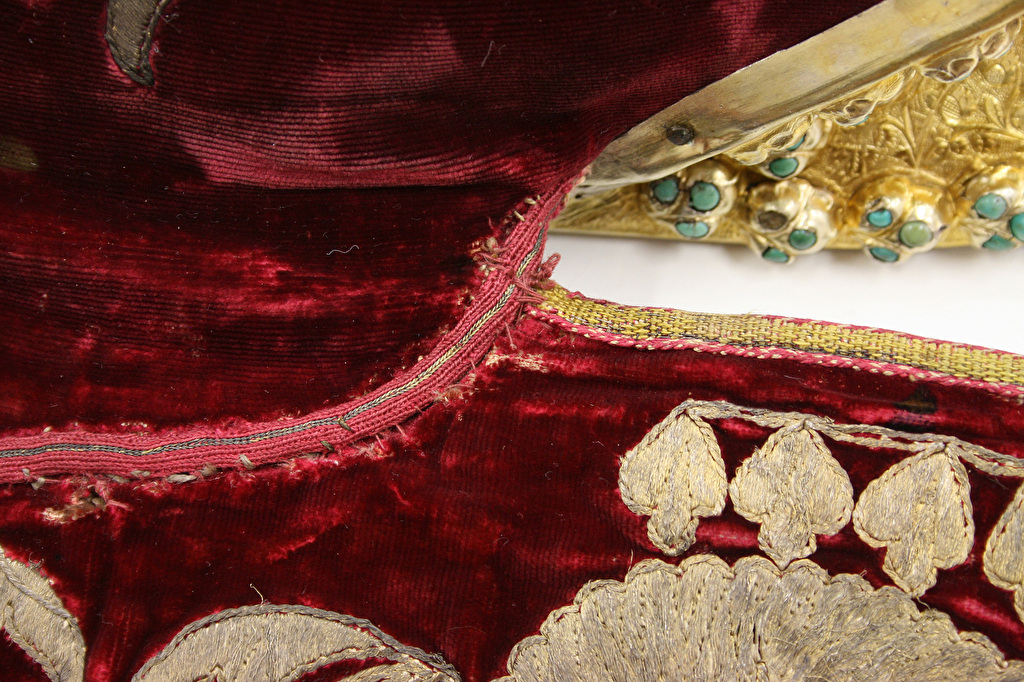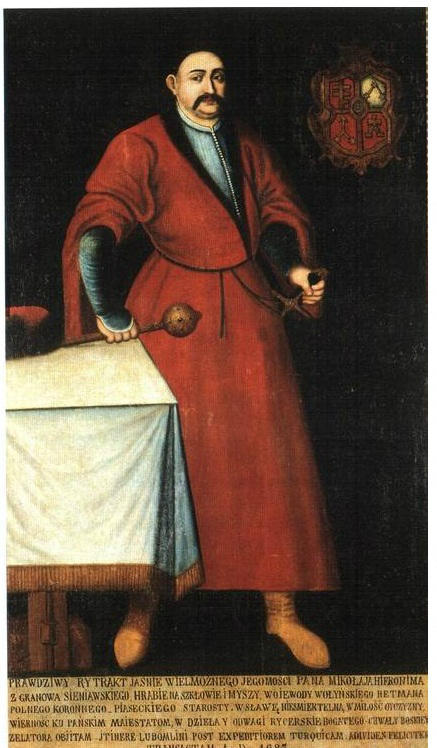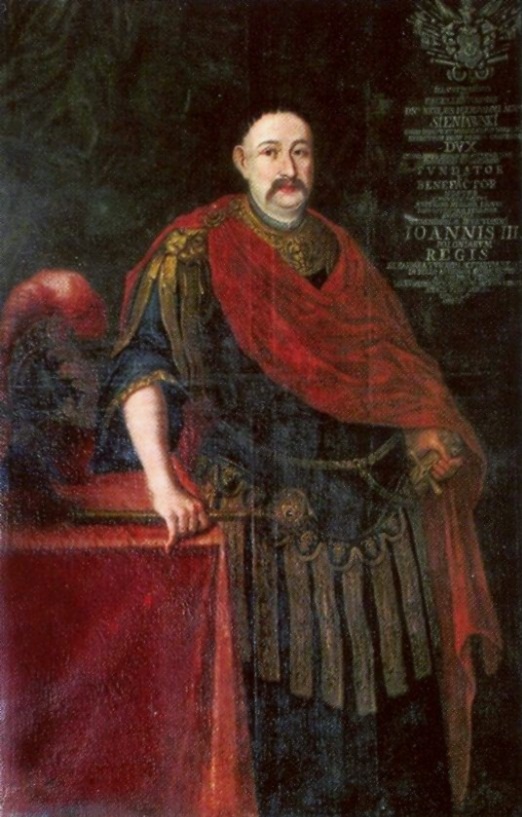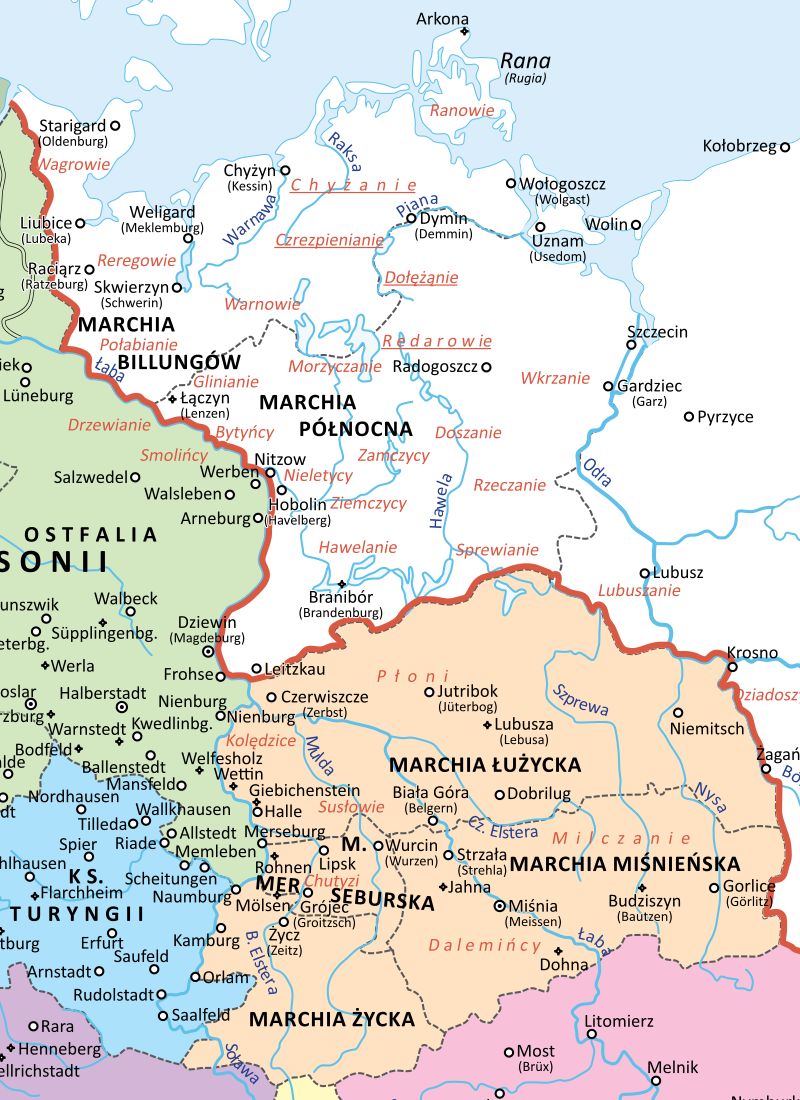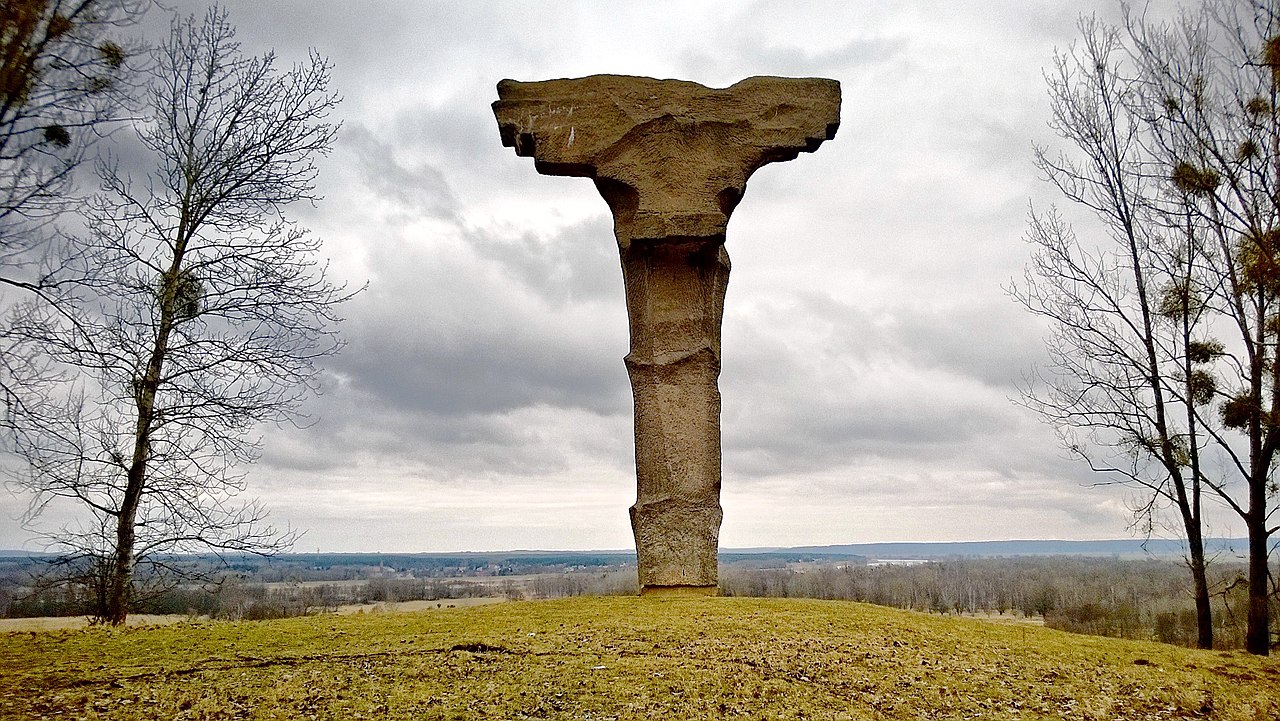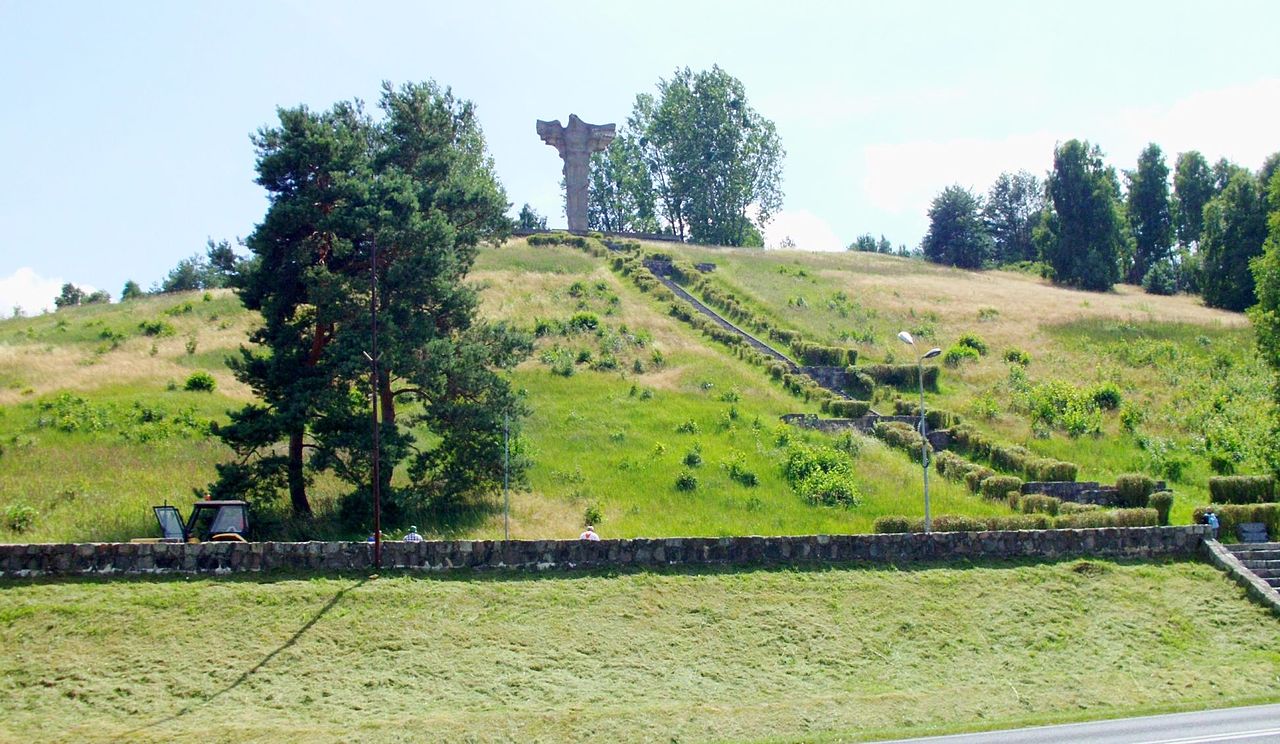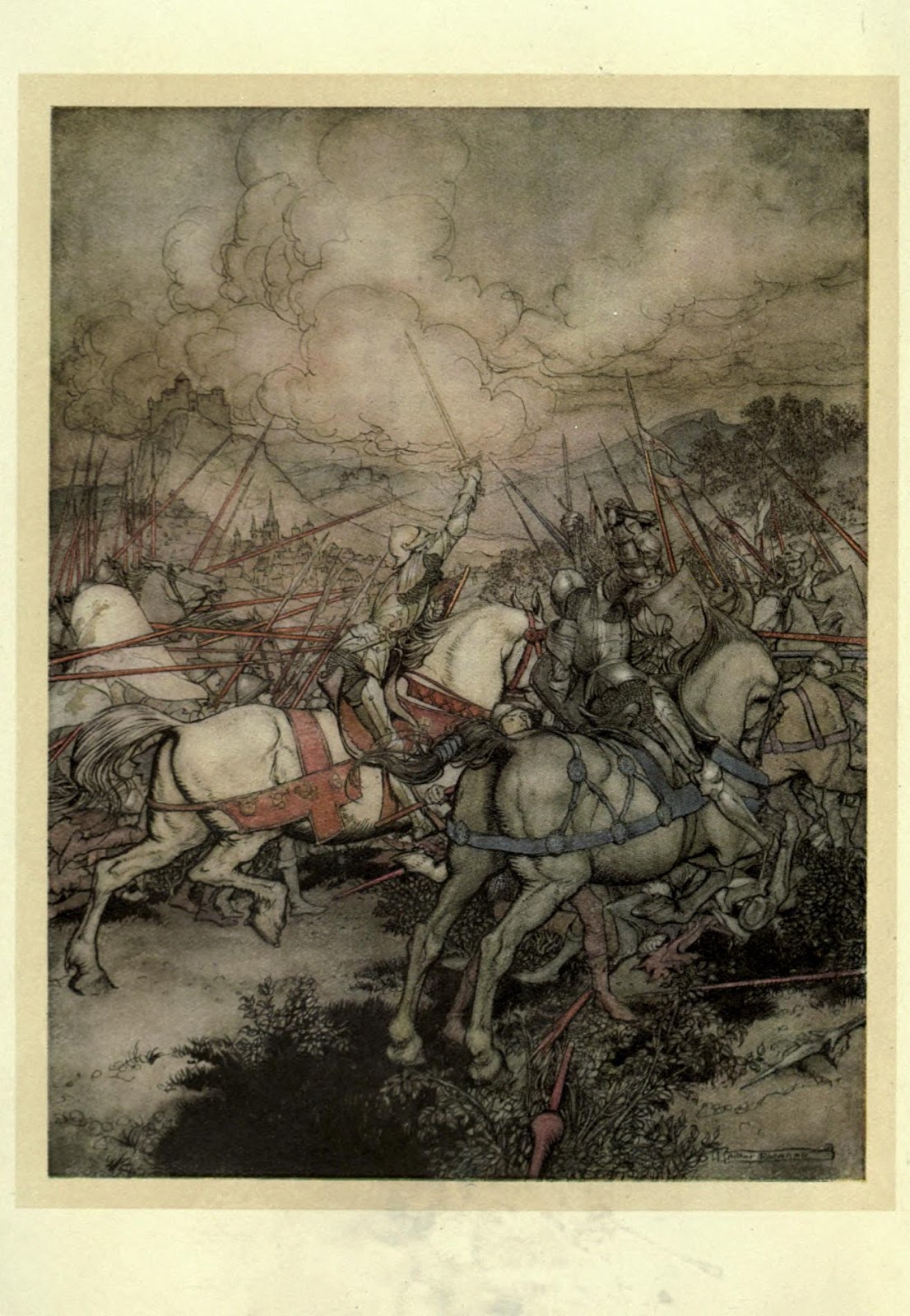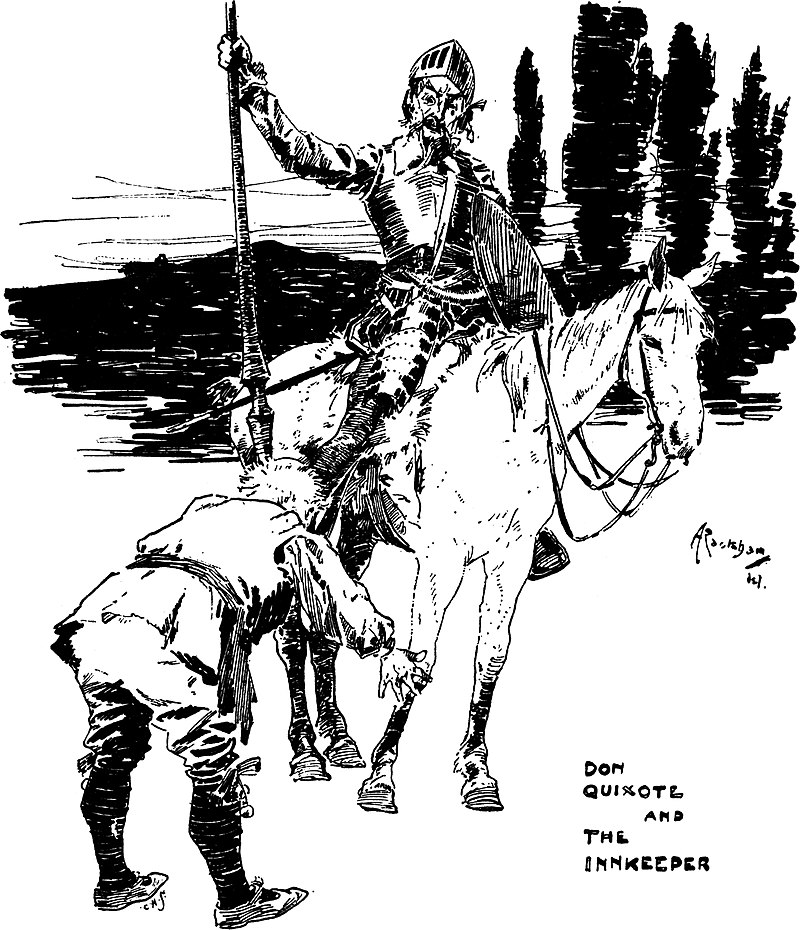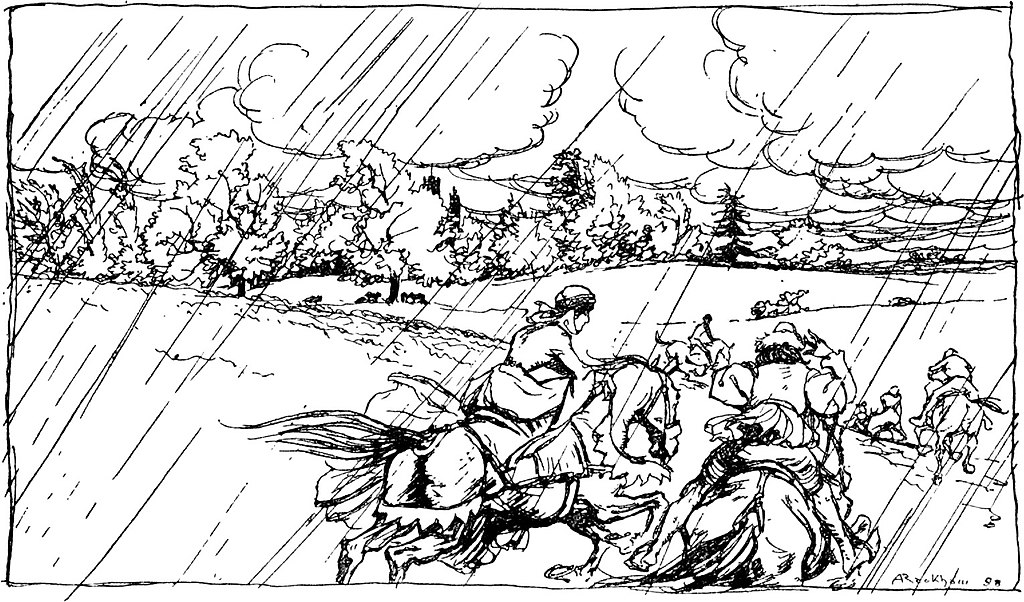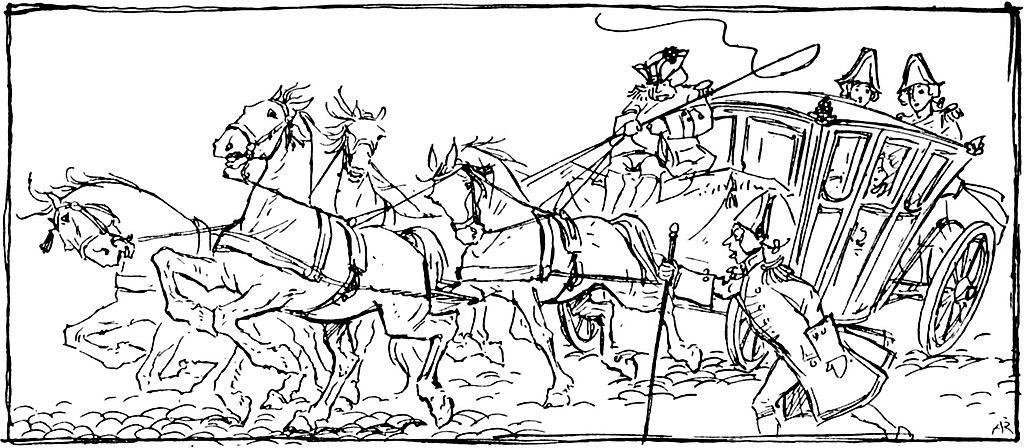Salvete Omnes,
hearkening back to some 1051 years ago:
Based on sources on June 24 Polish or Piast duke Mieszko and his brother Czcibor defeated the German/Saxon force of Markgraf or margrve (border lord or Marcher lord) Hodo (Odo) and Siegfried. This martial event is supposedly the first known victory of Polish army over the German state (Imperial or Holy Roman Empire and Saxon Kingdom) army.
And from the Chronicle of bishop Thietmar of Merseburg comes the following passage:
Meanwhile, the honorable margrave Hodo [Odo I] attacked duke Miseco [Mieszko I], who loyally paid tribute to the Emperor [Otto I] for the lands up to the Vurta [Warta, Warthe], with an army. To his aid came alone my [Thietmar's] father lord Sigifrid [Siegfried von Walbeck], then an unmarried juvenile, with his [men], and on the day of John the Baptist [24 June] they fought against him [Miesko]; they were victorious at first, but then his [Miesko's] brother Cidebur [Czcibor], except for the aforementioned great lords [Odo and Siegfried], slew all the best warriors at the site called Cidini [Cedynia, Zehden]. Disturbed by this miserable story, from Italy the emperor sent orders to Hodo but also Miseco, that by his graciousness, until he arrived himself to investigate the case, they were to remain peaceful.
Thus was preserved into eternity the very first 'official' armed conflict between the state of Piast Polan rulers against the German realm.
It became widely celebrated in Polish tradition and historiography in the previous century. Peoples' Polish Republic (1949-89) had a monument erected at Cedynia, West Pomeranian voivodeship.
However, the debate about the battle and the whole conflict is ongoing among the historians.
Valete






